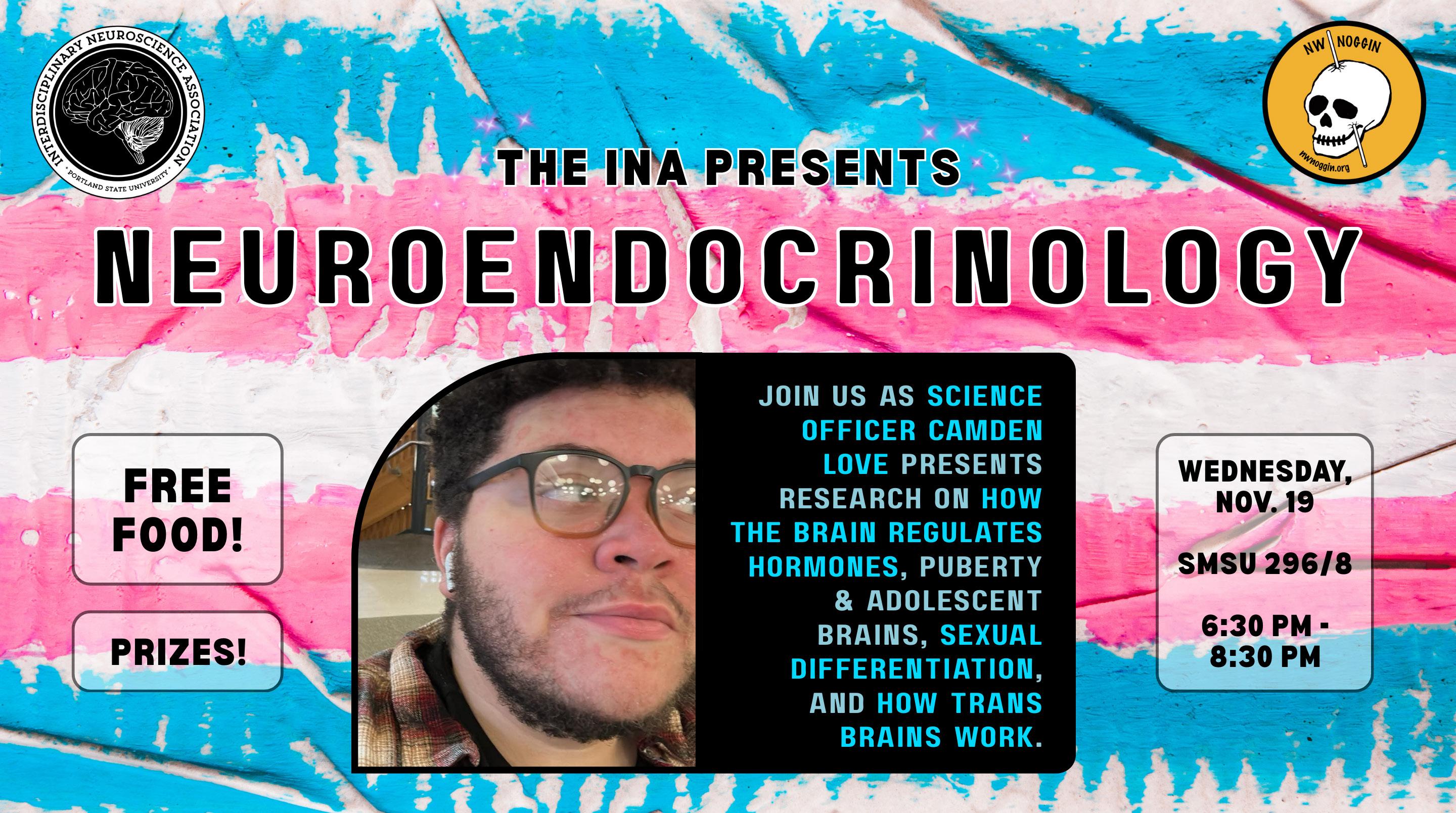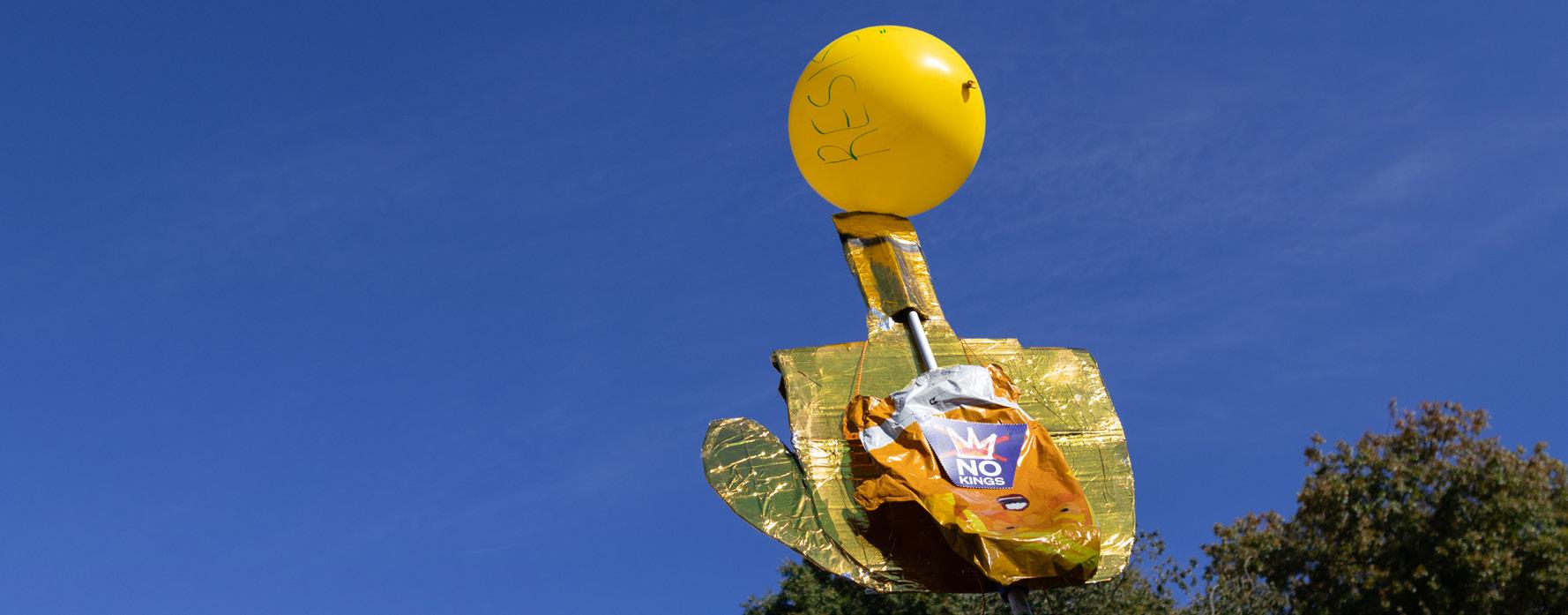




EDITORIAL
EDITOR IN CHIEF
Noah Carandanis
MANAGING
Olivia Young
NEWS
Vacant
ARTS & CULTURE
Adyan Hussein
OPINION
Nick Gatlin
MULTIMEDIA
Nash Bennett
SOCIAL
Liam Schmitt
COPY CHIEF
Jude Callaway
ONLINE EDITOR
Quinn Willett
DISTRIBUTION MANAGER Caleb Dougherty
PRODUCTION & DESIGN
CREATIVE DIRECTOR Haley Hsu
ADVISING & ACCOUNTING
COORDINATOR OF STUDENT MEDIA
Reaz Mahmood
SALP ACCOUNTANT
Maria Dominguez
STUDENT MEDIA TECH ADVISOR
Rae Fickle
STUDENT MEDIA TECH DEVELOPER
Kaylee Hynes
WEB DESIGNER
Owen Cook
To contact Portland State Vanguard, email editor@psuvanguard.com.
MISSION STATEMENT
PSU Vanguard’s mission is to serve the Portland State community with timely, accurate, comprehensive and critical content while upholding high journalistic standards. In the process, we aim to enrich our staff with quality, hands on journalism education and a number of skills highly valued in today’s job market.
ABOUT
Vanguard, established in 1946, is published weekly as an independent student newspaper governed by the PSU Student Media Board. Views and editorial content expressed herein are those of the staff, contributors and readers and do not necessarily represent the PSU student body, faculty, staff or administration. Find us online at psuvanguard.com.



As the government shutdown threatens to eliminate SNAP benefits, Oregonians and PSU students alike face uncertainty.

With the current government shutdown set to impact the Supplemental Nutrition Assistance Program (SNAP), many Portland State University students are left without a crucial resource. If the federal shutdown persists, over 750,000 Oregon residents, including PSU students, will see their monthly benefits delayed or halted indefinitely.
SNAP is a federally funded nutritional assistance program, designed to help low-income individuals meet basic needs. Earlier this month, the United States Department of Agriculture (USDA) issued a statement alluding to a lack of allocated funds to continue to support the program after Nov. 1.
According to the Oregon Department of Human Services, nearly one in six Oregonians rely on the program’s food stamps. As November approaches, families nationwide will face barriers to accessing food.
The PSU Smallwood Food Pantry, located in Smith Memorial Student Union, has become a crucial resource for students facing food insecurity. The pantry’s director Tess Conley notes the shifts she expects with SNAP’s halt. “We’re going to see a huge influx in people
utilizing the pantry. I think we’ll see people who use the pantry coming more frequently, and I think that we’ll see a lot of new faces,” said Conley.
In addition to recent funding reductions, Conley notes that the “Big Beautiful Bill”, a Trump administration statute containing tax and spending policies, has already made it more difficult for the pantry to match demand.
“We’re seeing so many more people and so much less food, and that is just because of all of the federal cuts that came down with the One Big, Beautiful Bill that was passed,” said Conley.
Conley explained that those cuts have strained resources across Oregon and left pantries struggling to meet demand. The pantry reported an increase in utilization over the past year, demonstrating that student food insecurity has already been on the rise.
“[From] this time last year, we saw a 36.2% increase in utilization of the pantry. So we’re already seeing a huge jump, and that’s before snap cuts come into play,” said Conley.
For PSU students, the influx of need could mean longer lines and fewer available resources. As demand rises, Conley says PSU administration has shown awareness and support.
“There is not a specific plan in place as to what’s going to happen, but there are a lot of talks with administration. They’re aware of the need, and they’re aware that we’re looking for support, and I feel supported by them,” said Conley.
PSU President Ann Cudd acknowledged in an email statement the growing impact of food insecurity on campus and noted that administration is closely monitoring federal changes. Cudd reiterates that plans to support students are ongoing, mentioning coordination with the pantry.
“I am very aware that food insecurity is a common and critical issue among PSU students and the expiration of SNAP benefits under the federal government shutdown is a pressing concern. PSU services including the Basic Needs Hub and the Smallwood Food Pantry assist students in need throughout the year,” read the emailed statement. “My office will be coordinating with the pantry and the Basic Needs Hub to ensure that we do everything possible to support students during this time of heightened need.”
Many students who utilize the pantry are feeling concerned, according to the pantry’s
Director of Outreach Kaylee Neznanski, a senior majoring in marketing and non-profit work.
“Not having SNAP is super stressful, especially being in school. People are trying to figure out how they’re going to pay off their textbooks or finish paying for school while having SNAP cut,” said Neznaki. “At PSU, we have a lot of nontraditional, [students] with families, students who are working. SNAP being gone is really impacting and stressing out students.”
Without reliable access to meals, Neznaki says students may find it more difficult to keep up with coursework. As students’ personal resources become stretched thin, Neznaki notes the effects of food insecurity on academic performance.
“It takes the focus completely away from school,” said Neznaki. “I’m sure that’s the case for many of our students. People are probably not going to be prioritizing school in this moment.”
As programs like SNAP face mounting pressure due to the federal shutdown, students in need are left to face uncertainty. Resources like the Basic Needs Hub and the PSU Food Pantry are preparing for an influx of students while navigating funding shifts.

“We welcome our newest residents,” says Kotek
NICK GATLIN
This piece is a look into one possible reality where the National Guard was sent to Portland. All quotes are fictional.
PORTLAND— National Guard troops deployed to Portland by president Donald Trump earlier this week appear to have been infected with a strain of “Woke Mind Virus,” or WMV, according to the Centers for Disease Control and Prevention (CDC).
Acting Director Jim O’Neil said in a prepared statement Wednesday that the affected Guardsmen should be “quarantined for further study,” prompting Adjutant General of Oregon Alan Gronewold to order a general quarantine for all National Guard members in the city later that day.
“This is a crisis, and we’re treating it like one,” said Gronewold.
Infected Guardsmen have expressed shock and dismay at their deployment, with some speaking to reporters gathered outside what they have dubbed the “South Macadam Autonomous Zone,” or SMAZ.
“Why are we even here?” said one Private. “These protests aren’t hurting anyone. I mean, this is low energy — they send us out here, with guns, for this? Come on.”
Common symptoms of WMV include “empathy,” “compassion” and “a heightened awareness of social injustice,” according to a CDC report on the illness.
“Highly contagious, WMV may be contracted upon contact with marginalized groups, education about the history of the United States, or playing pickleball,” the report said.
Speaking at a press conference Thursday, Director O’Neil remained cautious when asked about the epidemic. “I cannot comment on the MSNBC theory,” said O’Neil, “but we’re looking into Rachel Maddow very closely.”
Oregon Governor Tina Kotek and Portland Mayor Keith Wilson on Thursday released a joint statement welcoming the infected Guardsmen to the city, urging Portland residents to greet their newly-woke brethren with open arms. “We can never fault someone for changing their mind,” said Wilson. “We’re glad that a few minutes in Portland was all it took to show [the Guardsmen] what a wonderful city this is.”
Entering the Governor’s residence Thursday night, Kotek’s eyes reportedly glowed red as she chuckled to the gaggle of reporters outside
and said, “That’s Portland, kid.”
Despite the quarantine order, Guardsmen quarantined inside SMAZ have been able to smuggle in a variety of luxury goods from the city, including two cratefuls of thrifted sweaters and 17 buckets of matcha powder.
“It’s earthy, with a subtle natural sweetness,” said one Guardsman, unprompted.
The quarantined soldiers have devised a number of activities to pass the time. One group of Guardsmen have established a study group for feminist literature. Their first meeting discussed bell hooks’ “The Will to Change,” which caused a minor disturbance and then dramatic reconciliation as two Guardsmen let down their hard emotional shells and recognized the toxic influence patriarchal norms had had in their lives, hugging and crying for just under 20 minutes.
Several drama-inclined Guardsmen formed the “Clifford Odets Memorial Theater Company,” an ad-hoc acting troupe that stages shows by its leftist playwright namesake and other “subversive” writers.
“We’re doing ‘The Threepenny Opera’ next,” said one actor.
After a copy of Willamette Week found its
way into SMAZ, one Guardsman who selfidentified as “Sergeant Spreadsheet” has been preparing a point-by-point presentation for General Gronewold regarding the implementation of Willamette Week's article “47 Ways the National Guard Could Actually Help Portland.”
“It makes so much sense,” said Gronewold. “Why are we here to break up lawful protests? We could be filling potholes! We could help the city prepare for The Big One!”
General Gronewold’s office did not respond when asked for comment.
In Washington, Secretary of Defense Pete Hegseth has reportedly been checked into George Washington University Hospital following a nervous breakdown upon hearing of the situation at SMAZ.
“The Secretary of SNORE, who fell into the Long Sleep, or Coma, couldn’t get it done,” President Trump wrote in a Truth Social post late Thursday night. “Loser Pete is hereby replaced with Me, Your Favorite President. SAVE PORTLAND!!!”
The SMAZ occupiers appeared dismissive of the president’s remarks.
“What’s he gonna do, throw a hamburger at us?”
NASH BENNETT
On Oct. 18 2025, over 40,000 Portlanders filled the streets for No Kings 2.0, a march displaying opposition to the Trump administration’s use of executive order. The protest follows growing outrage over Donald Trump’s deportation crackdowns, deployment of National Guard troops in Democrat cities among other grievances. This is the second demonstration from the No Kings movement, the first taking place back in June 2025.







NICK GATLIN
Ashley Yang-Thompson, former Portland State University student and artist, has something to say — 107 pages’ worth.
Published earlier this year, YangThompson’s new book “Still Worm” is the product of her efforts to produce art in the face of challenging circumstances, including her experience at PSU.
One section of the book, titled “Common Nonsense: Rants of Perversity and Technology,” features a big PSU logo crossed out with an X, one of a few references to PSU in the book. “I did the contemporary art (Master of Fine Arts, MFA) program, and then I transferred to the Art and Social Practice program,” said Yang-Thompson, “and then I dropped out.”
“I applied for an MFA at PSU because my brother lived in Portland, and I didn’t really look at the website much or anything, and at the time it was pretty much fully funded… I kind of just did it to get out,” said Yang-Thompson.
One of the factors preceding YangThompson’s decision to drop out was the art program running out of funding, with the prospect of having to pay for something she would be doing anyway. “I had some really special relationships with many of the teachers, so it wasn’t all bad,” said Yang-Thompson.
It was also the program at PSU that led to her meeting fellow artist and zine maker Nia Musiba. “I was so depressed in
that decrepit art building, and I stumbled upon a zine that someone had placed on my desk called ‘Echo,’ and I emailed the person on there, and it was Nia Musiba,” said Yang-Thompson. “We met up, and I was like, ‘I need a collaborator because I’m so depressed and I can’t make any art by myself. I need help.’ So we started [the zine] ‘Worm Slut.’”
The seeds of her first full-length book were planted around the same time. “I won the [Arlene Schnitzer Visual Arts Prize], and that’s kind of how ‘Still Worm’ got started. It was originally called ‘The Philosophical Pedagogy of Ash YangThompson, Which Is In a Perpetual State of Flux Because Life Resists Comprehension, or I Do, I Undo, I Redo.’”
After the publication of that chapbook, Yang-Thompson’s publisher asked if it could be given a more marketable title, which resulted in the book’s current title.
Yang-Thompson describes “Still Worm” as “like a collage, or a sampled song,” exploring a range of themes, including the attention economy, art as a spiritual practice and living life symbolically. The book ranges from poems about “ephemeral, anti-capitalist art” to a fictional syllabus from the course “Cognitive Disobedience (and the Right To Be Lazy)” from “Flesh Walrus University”, to a micro-essay titled “The Importance of Smut.”
“Still Worm” officially got its start in a class titled Praxis and Pedagogy, when Yang-Thompson took the opportunity
to redirect a teaching portfolio assignment into what became the first seeds of the book. “My attention has been fragmented in the past decade or so, and I needed to work within that. Just embracing the fragmented nature of my creations and my thoughts, and how they were, really, constipated pebbles — like, I was really creatively constipated,” said Yang-Thompson.
“I had, just, so much bursting out of me,” said Yang-Thompson, “I wanted to express disorder.”
One of the defining characteristics of the book is its focus on the non-beautiful aspects of life, like defecation, mental illness, pimples and the aforementioned flesh walrus. Worms, appearing frequently across Yang-Thompson’s body of work, also feature prominently in “Still Worm.”
Why worms? “I realized that the only thing I could just draw from memory was a worm, like a little squiggle. That was all I had in me, was this worm. And then I was like, ‘Oh, but this worm also kind of looks like a finger, and this finger kind of looks like a baby carrot, and this baby carrot kind of looks like a micropenis… I was building up this more elemental visual lexicon of forms and symbols,” said Yang-Thompson.
“My maxim was: ‘resist the urge to make my art more beautiful.’”
You can buy “Still Worm” from Bateau Press, Powell’s and other retailers.

The Sea and Cake, somewhat of a post-rock super group, transcend the meaningless genre label on “The Fawn”. They achieve this by putting a pin in a very particular thread that crosses all of the influences they’d referenced on prior records. It’s rock, yet moments shine through with flavors of jazz, twee-pop and minimalist electronics.
Hailing from Chicago, The Sea and Cake is among a class of post-rock trendsetters, with many of its members being transplants from other iconic bands of the genre like Tortoise and Shrimp Boat. Many conventions are carried over from those acts, like an experimental approach to song arrangements and willingness to incorporate far reaching genres. The Sea and Cake brings what’s generally a somber and brutalist sound to a sweeter place. There’s a sparkly nature to the band that stands a bit more whimsical than contemporary. Part of this cloudy quality is thanks to the vocal timbre of lead singer Sam Prekop, whose whispery voice coats the instrumentation gently. His voice is elevated by remnants of a British accent left over from his move from London to Chicago early on.
Prekop’s voice is an iconic facet of the band’s sound, but it’s the twinkly guitars and explorative drumming that stands at the forefront of the majority of their songs. There’s even a few songs on the record that are fully devoid of any lyrics, like the track “Black Tree in the Bee Yard”, a hypnotic tune that swirls over metallic guitar strums. Other times Prekop’s voice doesn’t appear till well into the song’s run time, which can be heard in “The Argument.” This song stands out as one of the best on the album, with tornado-like paradiddles and microbeats from drummer John McEntire. Amongst that rhythmic barrage, curious beeps and boops are heard within the mix, creating a wonderful juxtaposition of cutesy melodic textures and harsh but danceable percussion.
Walking around fall time in Portland while listening to this album will make you feel like the main character in a Spike Jonze movie. Listen if you like: Toe, Geese or Broken Social Scene.